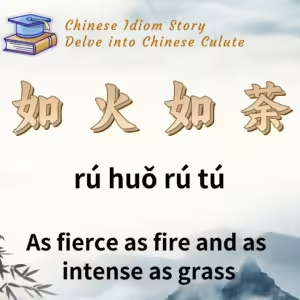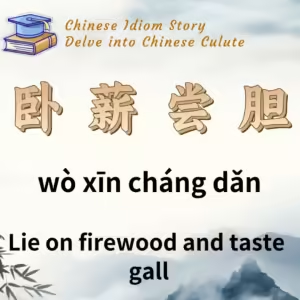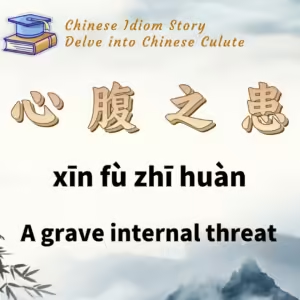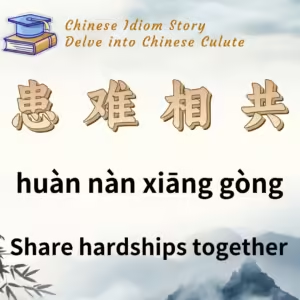
Chinese Idiom: 如火如荼 (Ru Huo Ru Tu)
English Translation: As fierce as fire and as intense as grass
pīn yīn: rú huǒ rú tú
Idiom Meaning: This idiom describes a scene or atmosphere that is extremely vigorous, intense, and heated, often used to depict energetic and lively situations or events.
Historical Source: 《国语·吴语》 (Records of the State of Wu)
Idiom Story:
In 482 BC, during the height of the Wu Kingdom under King Fu Chai, the kingdom was actively seeking to assert its dominance over other powerful states such as Qi, Chu, and Jin. After defeating the Yue Kingdom, Fu Chai aimed to secure his position as the hegemon by convening a grand meeting of the lords at the Yellow Pool (黄池) in the Wei State.
Unexpectedly, Fu Chai received alarming news that King Gou Jian of Yue, whom he had previously defeated, had taken advantage of Wu’s absence to invade Wu’s territory, causing significant damage and loss. Faced with this crisis, Fu Chai was caught between the need to respond to the Yue invasion and the imperative to assert his dominance at the meeting.
To navigate this difficult situation, Fu Chai’s advisor Sun Luo proposed a strategy to achieve both objectives. He suggested that Fu Chai conduct the meeting with an overwhelming display of military strength to impress and intimidate the other lords, ensuring the Wu Kingdom’s position as the dominant power.
That night, Fu Chai ordered his army to prepare for a grand display. The troops were divided into three divisions, each wearing different colored uniforms and carrying different colored flags:
- The central army wore white armor and carried white flags, which looked like blooming white grass flowers from a distance (“望之如荼”).
- The left and central armies donned red uniforms and flags, appearing like blazing fire (“望之如火”).
- The right army wore black uniforms and carried black flags, resembling dark clouds (“望之如墨”).
The next morning, the sight of this meticulously arranged and color-coded army, coupled with the booming war drums and the soldiers’ loud cheers, created a formidable and awe-inspiring spectacle. The other lords, including King Jin Ding, were so intimidated by this display that they readily accepted Fu Chai’s hegemony.
The vivid imagery of “如火如荼” (as fierce as fire and as intense as grass) reflects the overwhelming and dynamic presence of Wu’s military, and it became a metaphor for any scene or situation that is intensely vigorous and full of energy.






